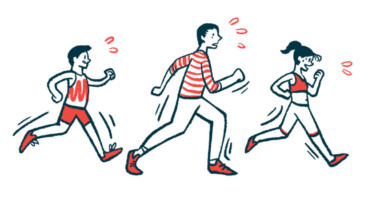Many Hemophilia B Patients Have Pain, Depression and Overall Poor Health, Study Finds

Many hemophilia B patients experience joint pain, depression and overall poor health, a study reports.
Other findings were that women with hemophilia B had worse health than men and that those caring for children with the disorder often experience anxiety and depression.
The team titled its study in the European Journal of Haematology “Impact of Hemophilia B on Quality of Life in Affected Men, Women , and Caregivers – Assessment of Patient – Reported Outcomes in the B-HERO-S Study.”
Large-scale studies covering hemophilia A and B have shown that many patients experience joint pain that affects their quality of life, anxiety and depression, and other health problems. Researchers found links between levels of patients’ pain and unemployment, and levels of pain and their use of opioids and anxiolytics.
Because most of the patients in these studies had hemophilia A, findings on hemophilia B have been limited, however. B patients account for only 15 to 20 percent of patients overall.
In addition, women and children with hemophilia have been underrepresented in clinical trials because they typically exhibit milder symptoms.
A research team designed a new trial to try to address these shortcomings. The B-HERO-S study builds on the HERO trial, which involved 675 adults with moderate to severe hemophilia A or B. But the B-HERO-S trial focused only on patients with hemophilia B, and included men, women and caregivers of children with the disease.
Early B-HERO-S results showed that hemophilia B hurts patients’ work life, ability to obtain an education, and ability to participate in recreational activities. Caregivers reported that it affected their children’s education, relationships, and physical activity. The caregivers also said that their children’s condition made it harder for them or their partners to work.
A total of 299 adults (median age 29 years, 29 percent women) and 150 caregivers participated in the study. The patient population represented a substantial portion of hemophilia B patients in the U.S. — about 4 percent of those with a mild disease and 10 percent of those with a moderate disease.
Sixty percent of the adults had moderate hemophilia B, 25 percent a mild disease and 11 percent a severe form.
The most common additional diseases that patients reported were arthritis (48%), acute or intermittent pain (29%), anxiety (23%), depression (22%), and chronic or persistent pain (13%).
Another finding was that adults with moderate hemophilia B reported poorer overall health than those with a mild or severe disease. This indicated that patients with a moderate disease “may be more affected by pain and mental health issues than previously recognized,” the researchers wrote.
It could also suggest that patients with a severe form of the disease could be more engaged in disease management than those with moderate hemophilia B, they added.
Women reported greater pain than men, and patients with moderate hemophilia more pain than those with a mild or severe disease. These results confirmed previous findings suggesting that “there are individuals who would benefit from more comprehensive assessment and more proactive management of joint disease and pain,” the team wrote.
Additional findings were that mild or worse depression occurred in more than half of adults with hemophilia B and that it was most prevalent in those with moderate or severe hemophilia. “These data reinforce the need for formal depression screening in individuals with hemophilia who experience bleeding or report psychosocial issues,” the researchers wrote.
Most caregivers reported at least mild anxiety and depression, especially those whose children had a moderate form of the disease. Overall, mothers were more affected than fathers.
“These findings highlight the need to increase routine education for caregivers of children with mild-moderate hemophilia, and suggest that screening for depression and anxiety in caregivers should be performed on a routine basis,” the team wrote.
Overall, “pain, functional impairment, and depression/anxiety are present at higher-than-expected levels in individuals with hemophilia B. The large proportion of individuals with mild/moderate hemophilia and women with reduced health status suggests significant unmet needs in this population,” the researchers concluded.






